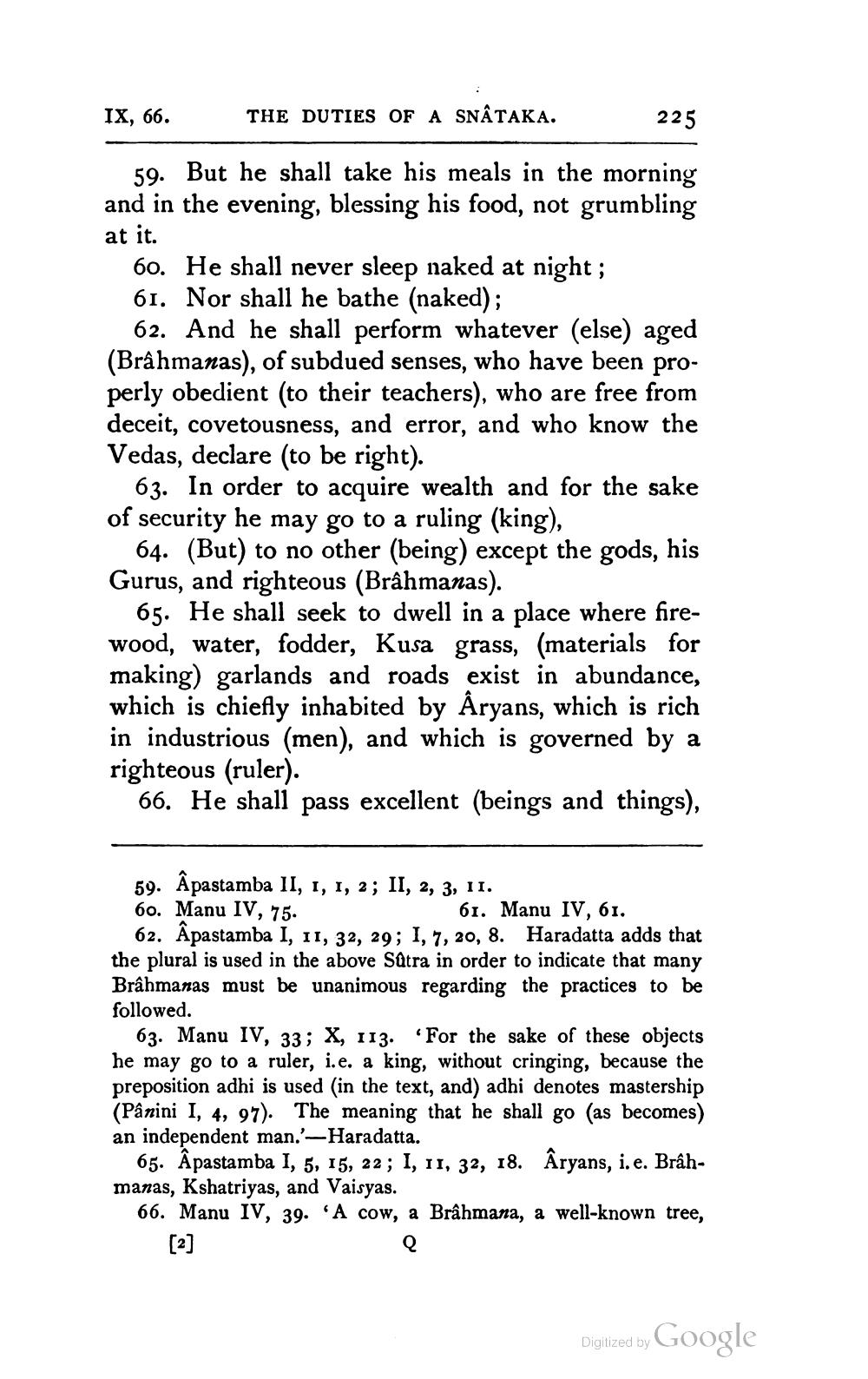________________
IX, 66.
THE DUTIES OF A SNÂTAKA.
225
59. But he shall take his meals in the morning and in the evening, blessing his food, not grumbling
at it.
60. He shall never sleep naked at night; 61. Nor shall he bathe (naked);
62. And he shall perform whatever (else) aged (Brahmanas), of subdued senses, who have been properly obedient (to their teachers), who are free from deceit, covetousness, and error, and who know the Vedas, declare (to be right).
63. In order to acquire wealth and for the sake of security he may go to a ruling (king),
64. (But) to no other (being) except the gods, his Gurus, and righteous (Brâhmanas).
65. He shall seek to dwell in a place where firewood, water, fodder, Kusa grass, (materials for making) garlands and roads exist in abundance, which is chiefly inhabited by Aryans, which is rich in industrious (men), and which is governed by a righteous (ruler).
66. He shall pass excellent (beings and things),
59. Âpastamba II, 1, 1, 2; II, 2, 3, 11. 60. Manu IV, 75.
61. Manu IV, 61. 62. Âpastamba I, 11, 32, 29; 1, 7, 20, 8. Haradatta adds that the plural is used in the above Satra in order to indicate that many Brâhmanas must be unanimous regarding the practices to be followed.
63. Manu IV, 33; X, 113. For the sake of these objects he may go to a ruler, i.e. a king, without cringing, because the preposition adhi is used in the text, and) adhi denotes mastership (Pânini I, 4, 97). The meaning that he shall go (as becomes) an independent man.'-Haradatta.
65. Âpastamba 1, 5, 15, 22; I, 11, 32, 18. Aryans, i.e. Brâhmanas, Kshatriyas, and Vaisyas.
66. Manu IV, 39. 'A cow, a Brâhmana, a well-known tree,
[2]
Digized by Google




